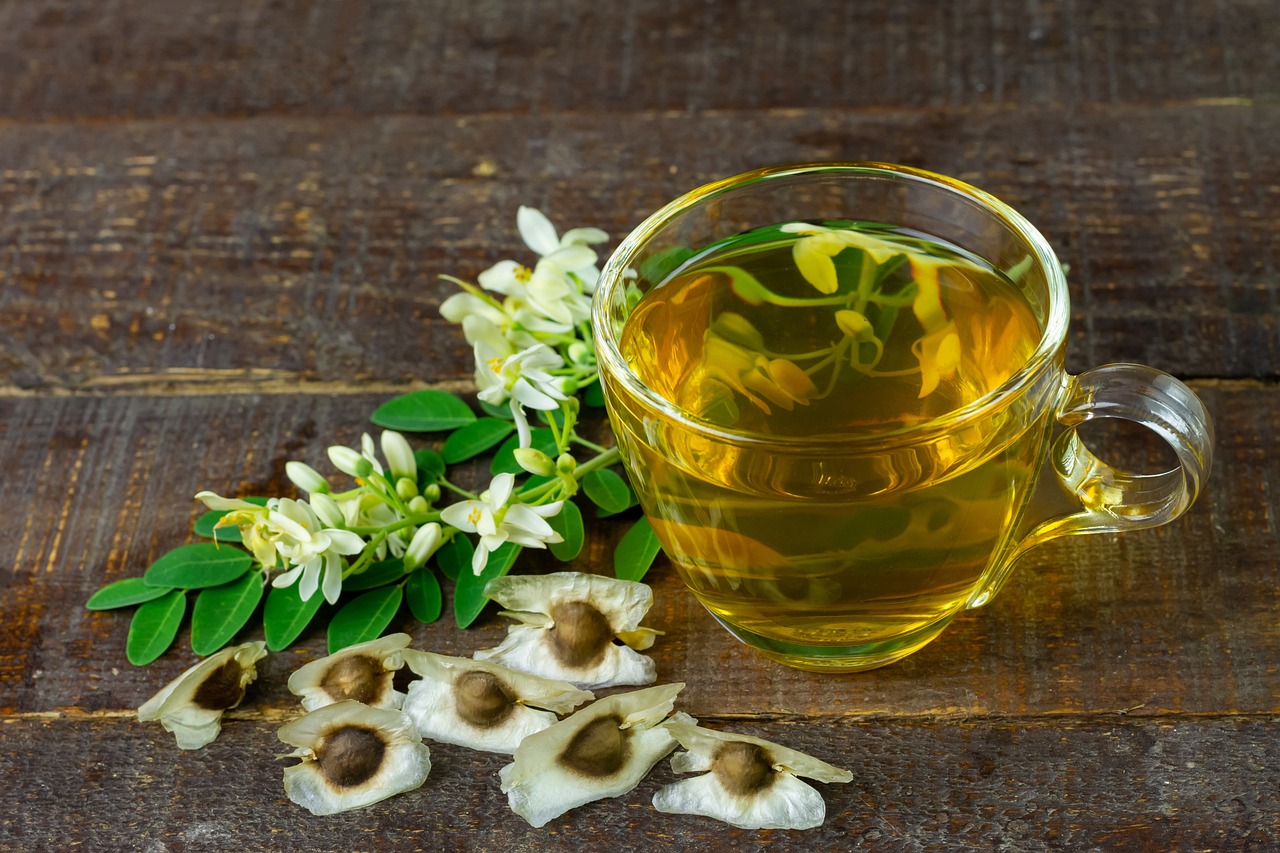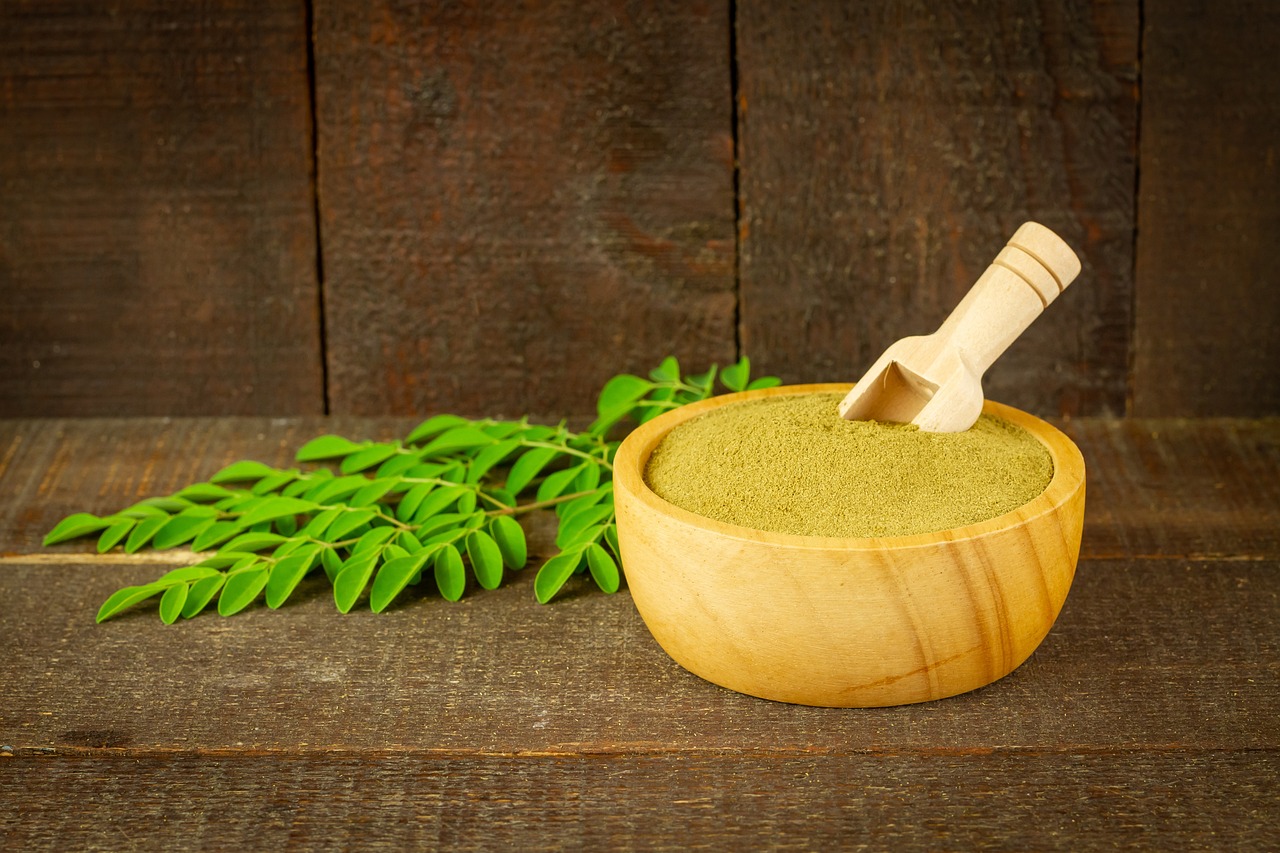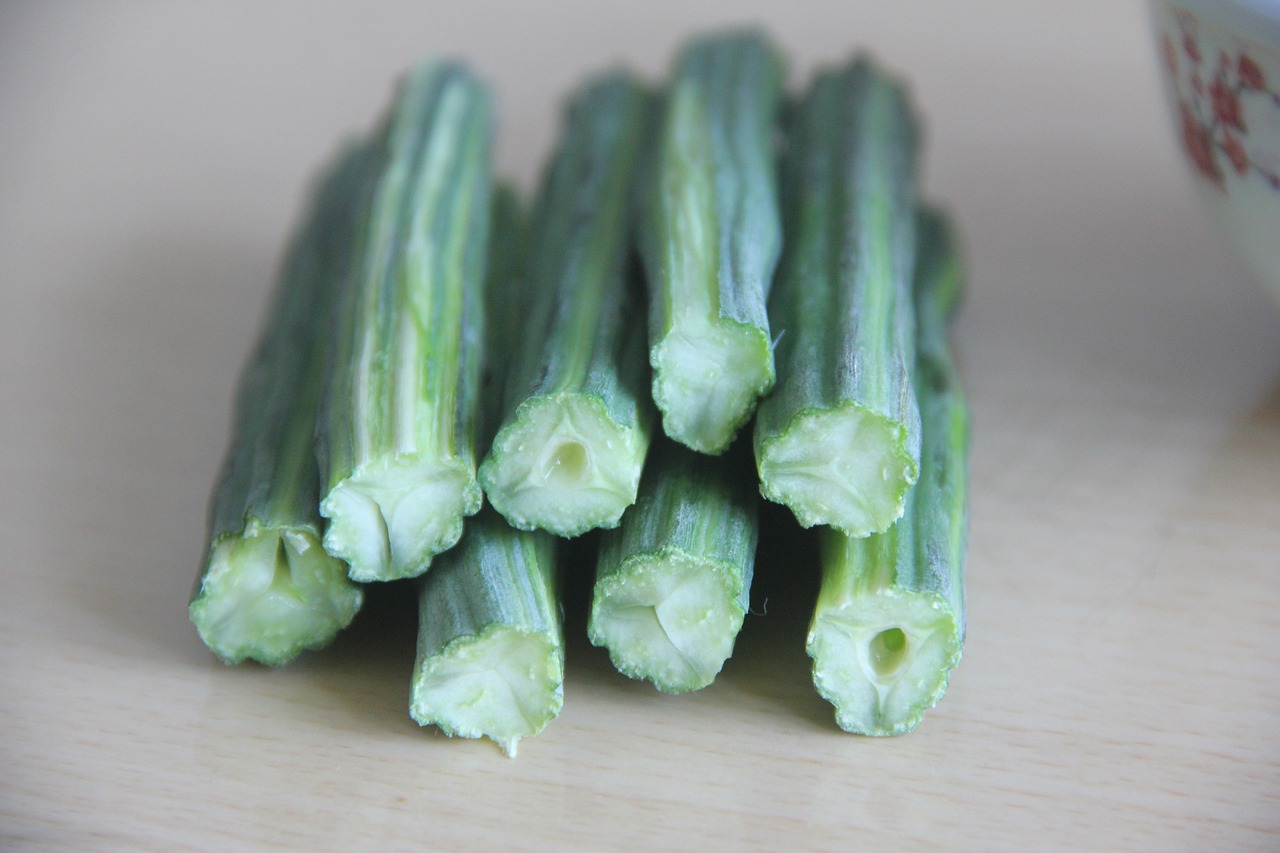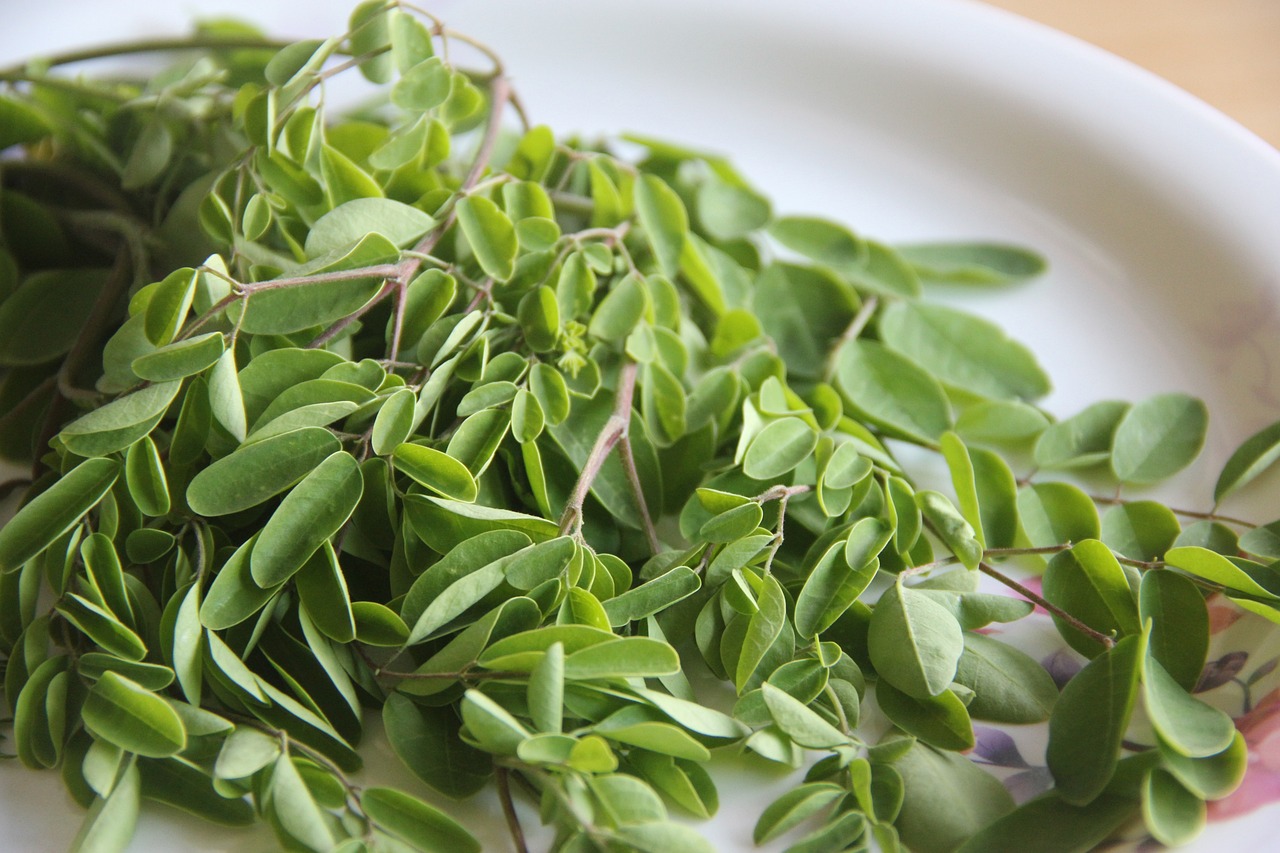Boost Your Health Naturally: How Moringa Leaves Can Transform Your Well-being
In our hectic modern lives, finding natural methods to enhance our health is more important than ever. Among the numerous superfoods available, moringa leaves are a standout for their remarkable nutritional and health benefits. Known as the "miracle tree," moringa (Moringa oleifera) has been utilized in traditional medicine for centuries and is now gaining global recognition for its exceptional health-boosting properties. This article delves into how adding moringa leaves to your diet can revolutionize your well-being, highlighting their nutrient richness and specific health advantages.
What is Moringa?
Moringa oleifera is a fast-growing tree indigenous to the Himalayan foothills in India, now cultivated widely across tropical and subtropical regions. Nearly every part of the tree, including its leaves, seeds, pods, and flowers, is edible and used for various health purposes. However, it is the leaves that are particularly renowned for their dense nutritional content.
Nutritional Profile of Moringa Leaves
Moringa leaves are incredibly nutrient-rich, providing a wealth of essential vitamins, minerals, and antioxidants. Here’s what makes moringa leaves exceptional:

Vitamins and Minerals in Moringa Leaves
Vitamin A: Important for good eyesight, a strong immune system, and healthy skin.
Vitamin C: Boosts the immune system and helps keep the skin healthy.
Vitamin E: Works as a powerful antioxidant, shielding cells from harm.
Calcium: Essential for keeping bones and teeth strong.
Potassium: Helps control blood pressure and maintain fluid balance in the body.
Iron: Necessary for making hemoglobin, which carries oxygen in the blood.
Magnesium: Supports muscle and nerve functions and helps produce energy.
Protein and Amino Acids
Moringa leaves contain all nine essential amino acids, making them a complete protein source, particularly beneficial for vegetarians and vegans.
Antioxidants
Moringa leaves are rich in antioxidants such as quercetin and chlorogenic acid, which help combat oxidative stress and inflammation.

Health Benefits of Moringa Leaves
Incorporating moringa leaves into your diet can offer a multitude of health benefits. Here are some of the most important ones:
1. Nutritional Enhancement
Due to their high nutrient content, moringa leaves can significantly improve your daily nutritional intake. Adding even a small amount of moringa powder to your meals or smoothies can provide a substantial boost of vitamins, minerals, and protein.
2. Immune System Support
The high concentrations of vitamins A and C, along with other antioxidants, strengthen the immune system, making your body more resilient to infections and diseases.
3. Digestive Health
Moringa leaves possess anti-inflammatory properties that can soothe the digestive tract. They also contain fiber, which aids in digestion and promotes regular bowel movements, preventing constipation and other digestive issues.
4. Blood Sugar Regulation
Research has shown that moringa leaves can help regulate blood sugar levels, making them beneficial for people with diabetes or those at risk of developing the condition. Compounds like isothiocyanates in moringa improve insulin sensitivity and lower blood sugar levels.
5. Inflammation Reduction
Chronic inflammation is linked to various health problems, including heart disease and cancer. The anti-inflammatory compounds in moringa leaves, such as quercetin, help reduce inflammation, thereby lowering the risk of chronic diseases.
6. Skin Health
The vitamins and antioxidants in moringa leaves contribute to healthy, glowing skin. Vitamin C aids in collagen production, while vitamin E helps protect the skin from damage caused by free radicals and environmental stressors.
7. Heart Health
Moringa leaves support heart health by reducing cholesterol levels and preventing plaque formation in the arteries. The antioxidants also help prevent oxidative damage to the heart and blood vessels.
8. Brain Health
The high levels of vitamins E and C in moringa leaves help combat oxidative stress in the brain, which is associated with neurodegenerative diseases like Alzheimer's. Additionally, the amino acid tryptophan in moringa aids in the production of serotonin, improving mood and mental well-being.
9. Weight Loss
Moringa leaves can be a valuable addition to a weight loss regimen. They are low in calories, high in fiber, and packed with nutrients, helping you feel full longer and reducing the urge to overeat.

How to Add Moringa Leaves to Your Diet
There are several ways to incorporate moringa leaves into your diet. Here are a few simple methods:
Moringa Powder
Moringa powder is made by drying and grinding the leaves. It can be easily added to smoothies, juices, soups, and sauces. A teaspoon of moringa powder a day is enough to reap its health benefits.
Fresh Leaves
If you have access to fresh moringa leaves, you can use them in salads, soups, and stews. They can be sautéed like spinach or used as a garnish for various dishes.
Moringa Tea
Moringa tea is made by steeping dried moringa leaves in hot water. It is a refreshing and nutritious beverage that can be enjoyed hot or cold.
Capsules and Supplements
Moringa is also available in capsule form, making it convenient to incorporate into your daily routine if you prefer not to use the powder or fresh leaves.
Potential Side Effects and Considerations
While moringa leaves are generally safe for consumption, it’s essential to keep a few things in mind:
Moderation: As with any supplement, moderation is key. Overconsumption of moringa can lead to digestive issues like diarrhea.
Pregnancy: Pregnant women should consult their healthcare provider before consuming moringa, as certain compounds in the plant may have uterine stimulant effects.
Quality: Ensure you purchase high-quality, organic moringa products from reputable sources to avoid contamination with harmful substances.
Conclusion
Moringa leaves are a versatile and nutrient-dense superfood that can significantly enhance your overall health and well-being. From boosting your immune system to supporting digestive health and promoting weight loss, the benefits of moringa are extensive and well-supported by scientific research. By incorporating moringa leaves into your daily diet, you can naturally boost your health and enjoy a more vibrant, energetic life. Whether you choose to use moringa powder, fresh leaves, or supplements, this "miracle tree" offers a simple and effective way to nourish your body and improve your quality of life.

FAQ on How Moringa Leaves Can Transform Your Well-being
1. What is moringa?
Moringa is a rapidly growing tree originally from the Himalayan foothills in India, now cultivated in tropical and subtropical regions globally. Known as the "miracle tree," it is highly valued for its nutrient-rich leaves, which are used in both traditional medicine and modern health applications.
2. What nutrients are found in moringa leaves?
Moringa leaves are loaded with essential vitamins (A, C, E), minerals (calcium, potassium, iron, magnesium), complete proteins (including all nine essential amino acids), and antioxidants such as quercetin and chlorogenic acid.
3. How do moringa leaves boost the immune system?
Moringa leaves enhance the immune system due to their high levels of vitamins A and C, along with potent antioxidants that help protect the body against infections and illnesses.
4. Can moringa leaves help regulate blood sugar levels?
Yes, moringa leaves can help manage blood sugar levels. Compounds like isothiocyanates in moringa improve insulin sensitivity and lower blood sugar levels, which is beneficial for individuals with diabetes or those at risk of developing the condition.
5. How do moringa leaves support digestive health?
Moringa leaves have anti-inflammatory properties that can calm the digestive tract. They also provide fiber, which aids in digestion and promotes regular bowel movements, preventing constipation and other digestive problems.
6. Are moringa leaves good for heart health?
Absolutely. Moringa leaves support heart health by lowering cholesterol levels and preventing plaque buildup in the arteries. Their antioxidants also help prevent oxidative damage to the heart and blood vessels.

7. Can moringa leaves help with weight loss?
Moringa leaves can aid in weight loss since they are low in calories, high in fiber, and nutrient-dense. This combination helps you feel full longer and reduces the tendency to overeat.
8. What are the best ways to incorporate moringa leaves into my diet?
Moringa Powder: Mix into smoothies, juices, soups, and sauces.
Fresh Leaves: Add to salads, soups, stews, or sauté them like spinach.
Moringa Tea: Brew dried moringa leaves in hot water for a nutritious beverage.
Capsules and Supplements: These provide a convenient way to include moringa in your daily routine if you prefer not to use powder or fresh leaves.
9. Are there any side effects of consuming moringa leaves?
Moringa leaves are generally safe, but it’s important to consume them in moderation. Too much can cause stomach problems like diarrhea. Pregnant women should consult their healthcare provider before using moringa due to potential uterine stimulant effects. Always choose high-quality, organic moringa products from reputable suppliers to avoid contamination.
10. Can moringa leaves improve skin health?
Yes, moringa leaves can improve skin health. The vitamins C and E in moringa help boost collagen production and protect the skin from damage caused by free radicals and environmental stressors, leading to healthier, glowing skin.
11. How do moringa leaves benefit brain health?
Moringa leaves are rich in vitamins E and C, which help reduce oxidative stress in the brain, associated with neurodegenerative diseases like Alzheimer's. The amino acid tryptophan in moringa also helps in the production of serotonin, which can enhance mood and mental well-being.
12. What is the recommended daily intake of moringa powder?
Generally, a teaspoon of moringa powder per day is sufficient to experience its health benefits. However, it's advisable to start with smaller amounts and gradually increase to assess tolerance and avoid digestive issues.
These frequently asked questions help highlight the numerous health benefits of moringa leaves and how they can be an excellent addition to your diet for improving overall well-being.
Powered by Froala Editor





Leave a Reply